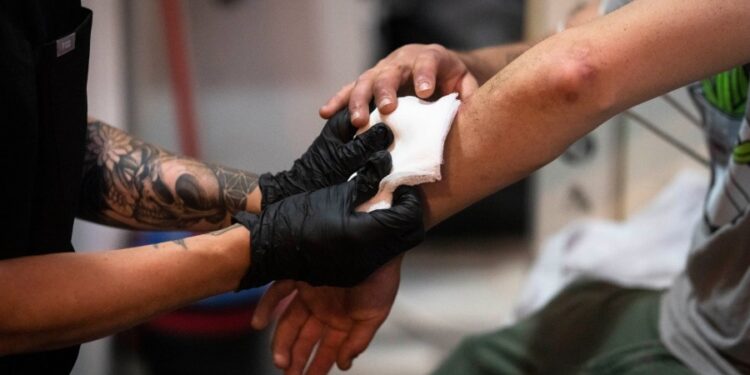(KTLA) – A Chinese chemical company, its director, and three senior employees have been indicted on charges of manufacturing and distributing fentanyl precursors and xylazine, the U.S. Department of Justice announced.
The company, Hubei Aoks Bio-Tech Co. Ltd., is based in Wuhan, China, and is accused of fueling the fentanyl crisis in the United States.
The 13-count federal grand jury indictment charges the company with multiple offenses, including conspiracy to manufacture and distribute fentanyl and the introduction of misbranded drugs into interstate commerce.
It’s alleged that from November 2016 to November 2023, Hubei Aoks sold significant amounts of fentanyl precursors to customers in the United States.
These chemicals were often mislabeled and imported as items such as furniture parts and makeup to evade detection. Some of the shipments were intercepted by U.S. agents, who were posing as buyers.
The company is also accused of selling xylazine, an animal sedative commonly referred to as “tranq,” which has saturated the streets of Los Angeles and is known for its effect of causing flesh to rot. Those properties have led to law enforcement dubbing xylazine a “flesh-eating zombie drug.”

Four individuals tied to Hubei Aoks, including the company’s sole director, Xuening Gao, 38, and senior employees Guangzhao Gao, 36, Yajing Li, 30, and an employee identified as “Jessie Lee,” have also been named in the indictment.
The Ministry of Public Security in China arrested the defendants and dissolved the company following a parallel investigation, the DOJ said.
“This indictment alleges a corporation, its director and sales manager reaped financial benefits by knowingly exporting materials that helped fuel the fentanyl crisis in our nation,” said U.S. Attorney Martin Estrada. “Synthetic drugs such as fentanyl have wreaked devastation in our country, and it is therefore critical that we hold accountable those behind this crisis.”
If convicted, the defendants face a mandatory minimum sentence of 10 years and up to life in prison.
The case was investigated by the Drug Enforcement Administration, the IRS Criminal Investigation, FDA Office of Criminal Investigations, Homeland Security Investigations, and U.S. Customs and Border Protection, among others.







